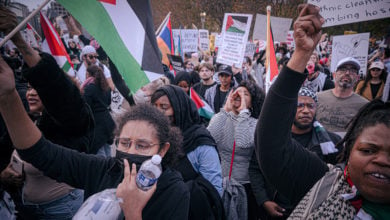Capitalist oil giants Exxon Mobile Corp. and ConocoPhillips refused to sign new oil deals with Venezuela in late June, ignoring a deadline set by the government of President Hugo Chávez. The corporations were incensed by new oil pumping restrictions placed on foreign investors.
Because of their refusal, Venezuela’s state oil company Petróleos de Venezuela SA (PDVSA) took 100 percent control
|
PDVSA also owns an average of 78 percent of the other joint ventures in the oil-rich Orinoco fields. This is up from 30 to 49.9 percent in the past.
Chávez’s government already took over operational control of Venezuela’s last privately-run oil fields on May 1 as part of its nationalization drive.
Greater government control over and ownership of Venezuela’s oil fields benefits the country’s workers and poor. More money than ever before is being funneled into building Venezuela’s social infrastructure.
Venezuela is also strengthening its economic ties with countries opposed to U.S. imperialist hegemony. On July 2, Chávez and Iran’s president, Mahmoud Ahmadinejad, launched construction of a joint petrochemical plant in the Iranian town Assalouyeh.
The deal underlines the growing cooperation between the two oil-rich countries.
Chávez had already welcomed Iran’s observer membership into the Bolivarian Alternative for the Americas (ALBA), the Cuban-Venezuelan alternative to the neoliberal Free Trade Area of the Americas.
While in Iran, Chávez said, “Cooperation between independent countries such as Iran and Venezuela will have an effective role in defeating imperialism.” He also condemned the U.S. occupation of Iraq, calling the Bush administration “barbarians” and drawing parallels with the European colonization of Latin America centuries before.
Posters in Iran read, “Iran and Venezuela—the axis of unity.” The posters showed the two leaders hugging each other and shaking hands. Iran was dubbed part of the “axis of evil” by George W. Bush in his 2002 State of the Union address.
Although Chávez aspires to achieve socialism in Venezuela and Iran’s leadership wants it to remain a capitalist state, both countries’ attempts to remain free of U.S. imperialism’s economic and political chains are greeted with extreme hostility and threats.
Venezuela’s ongoing effort to deepen economic ties with other anti-imperialist and oppressed countries helps build solidarity and strengthen the Bolivarian revolutionary process.






